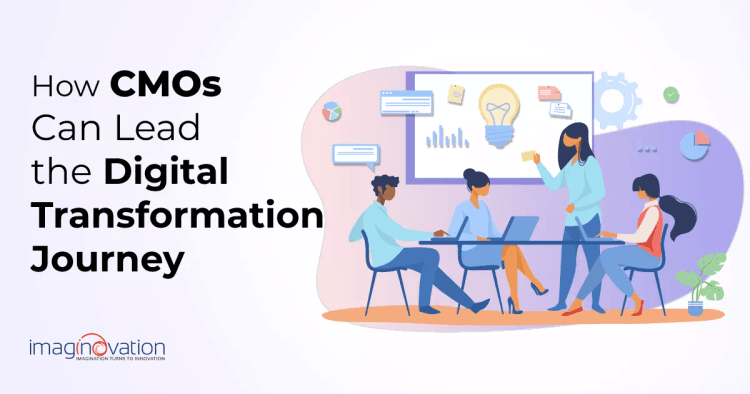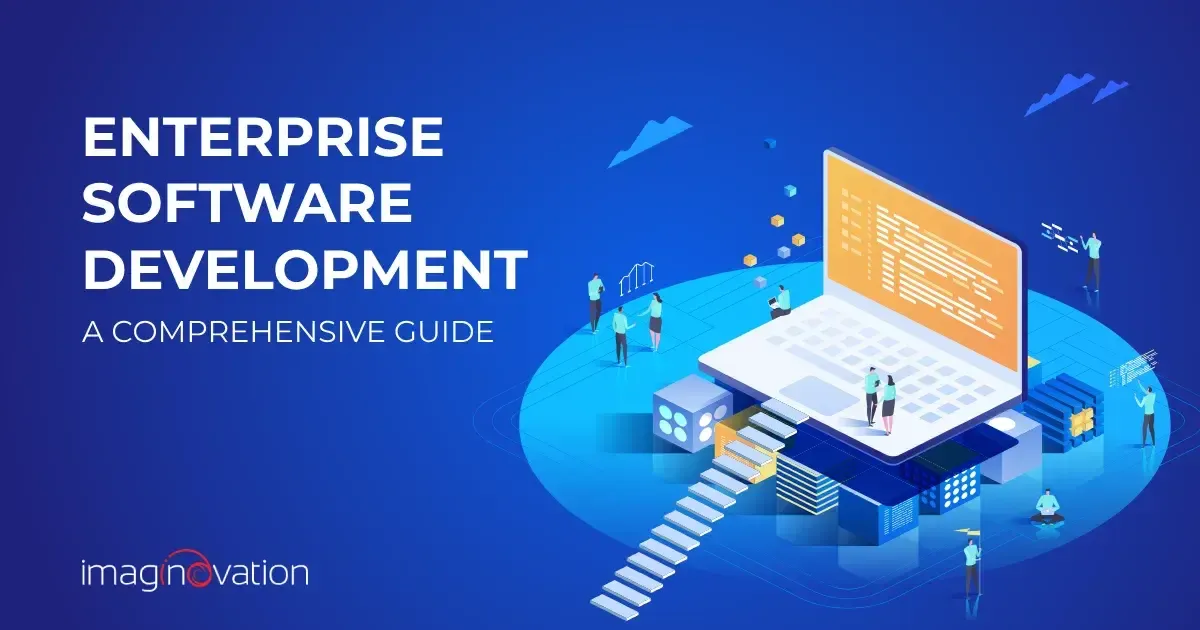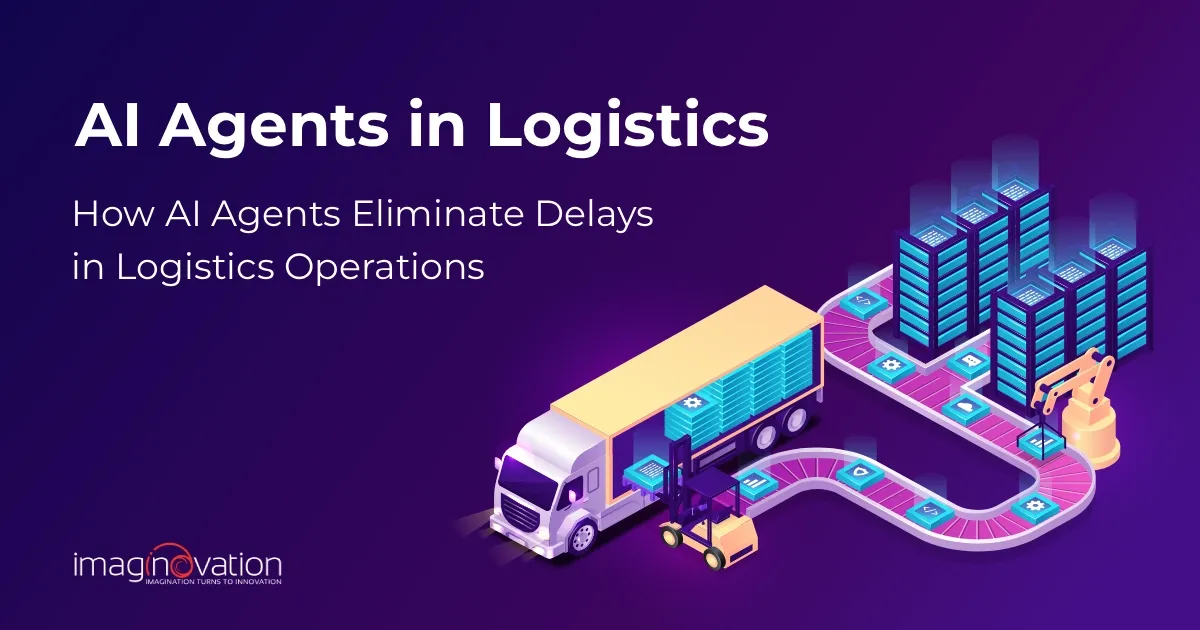To estimate the cost of building a website or an app, use our app cost calculator tool.
CMOs can play a key role in the digital transformation journey that can change the shape of business.
Yes, you are right!
The role of a Chief Marketing Officer can be critical in identifying products, services, and processes that can accelerate growth opportunities. CMOs are deeply involved in customer research, therefore they can accurately represent the voice of the customers.
When it comes to digitalization, CMOs have never been more decisive than they’re today. They can bring the punch the brand needs in the data-driven world.
It’s time to make sure that the CMO’s role in digital transformation shapes and delivers endearing customer experiences.
How?
We’ve rounded up some excellent digital transformation strategies that CMOs can adapt to drive success.
Let’s dive in!
Why CMO’s Should Be at the Forefront of Digital Transformation?

Let’s get to the point. Business leaders increasingly recognize the significance of customer experience.
Why is CX critical?
The business landscape is changing, and the new consumer behavior calls for a new approach to engage them. According to Gartner, most marketers expect customer experience (CX) to be the primary differentiator.
So, how can marketing leaders succeed in today’s digital era?
The simple answer is–put people first. Focusing on people and delivering CX in an efficient, engaging, and memorable way requires more than technical capabilities.
It’s no wonder that CMOs play a critical role in defining, managing, and directing customer journeys. The story of today’s CMO is fraught with challenges but is inspiring to the core.
Here’s a fascinating insight on the scale of things.
According to International Data Corporation (IDC), worldwide spending on the technologies and services that enable digital transformation (DX) is likely to reach $2.3 trillion in 2023.
It is observed that with all the time and resources, only 18% of organizations see real returns on their investments. The one role that can transcend this failure rate is the CMO.
Beth Ann Kaminkow, visionary leader and former chief marketing officer of Westfield Corp., aptly cites, “for [digital transformation] to trickle down and cascade into an organization in a way that is going to create a groundswell and galvanize people and be institutionalized, it has to be understood and shared at the very top.”
In short, how the C-suite executives set their digital transformation strategies will send a clear signal on future initiatives.
The CMO’s role in digital transformation is cohesively connected to a buyer’s journey. Here are some facets of why a CMO should be at the forefront of the digital transformation.
- When marketing leaders become early adopters and innovators in technology, they start to develop a more decisive point of view–of application within their business context and space.
- It allows one to understand behavior shifting better and helps in upping the game.
- It aids in setting concrete goals and facilitating people-oriented digital transformation strategies.
- It helps in preparing to manage the increasingly digital, social, mobile, and ubiquitous customer experiences.
How CMO’s can Lead DX Journey and Achieve Success?

As a CMO today, reimagining your role to bring in success is crucial. It is essential to set new standards while intently focusing on creating personalized, exceptional customer experiences.
Today, CMOs can lead the development of customer-centric approaches that maximize ROI. Here are some ways you can pilot the DX journey.
Also Read: A Complete Guide to Outsourcing Digital Transformation Successfully
1. Support the Full Customer Journey
Consumers today experience purchase journeys that can be either short or long and episodic. The purchase decisions have many micro-moments that include where to buy, how to buy, and more.
Consumers today also hop between devices, and that’s where marketers can offer accurate information at the right time to help them navigate the pathway. With data analytics around consumer insights, one can help stay ahead of competitors and help consumers at each stage of the journey.
What can you do?
- Set the priorities right, based on understanding the intent of consumers at that moment.
- Target potential users by using analytics and data that help to match the right audience based on the degree of commercial intent.
- Establish the right KPIs based on micro-conversions including, pages browsed, accounts created, and more.
2. Measure Through Customer Journeys
Companies can deliver an integrated, personalized experience across the customer journey. How? With innovations in mobile technology, companies can collect, analyze, and respond to consumer needs.
Let’s take an example.
It is easy to measure the impact of online advertising on offline sales. It is possible for retailers to know if a potential customer visits their store days or weeks after exposure to digital marketing. Now, that’s cool!
What can you do?
- Try and automate processes to free up time for low-volume, high-quality tasks.
- Analyze data to lighten the load.
3. Learning from Misses and Wins
CMOs need to learn from misses (failures) as much as from success stories. According to a study, digitally thriving companies are 64% more comfortable experimenting and adjusting.
In this context, Beth Ann Kaminkow shared one of her favorite expressions professionally – ABL (Always Be Learning). It is essential always to remember this fundamental.
A constantly curious mind blended with the desire to be on edge is key to moving ahead and evolving your business. It’s good to be customer-centric, but the experiences [to add based on well-tested experimenting] need to be curated with the feeling that you care about them.
Kaminkow cites that customers should know that you are doing what you’re doing because of them and their relationship with you.
At the C-level, especially as a CMO, it is necessary to steer everyone to focus on wins and learn lessons from misses.
What can you do?
- Learn from case studies and draw insights on experimentation prevailing across the market.
- Celebrate the learning more than the results.
- Try setting up monthly calls with customers and partners to understand their perception and viewpoint on the market scenario.
- The customer-first meetings are an excellent base for developing experiments.
- Reiterate that digital and co-creation are synonymous and inculcate a culture that rewards and contributes to a thriving digital organization based on experimentation.
4. Encourage and Forge Closer Working Relationships with the Rest of the C-Suite
It is increasingly critical for marketers to work closely with customer service organizations today. So, as a CMO, you play a more central role in your company’s digital transformation.
It is great to work towards a collaborative mentality across functions, which can facilitate curating deeper digital connections. The fact is reiterated in a study. It was highlighted that highly collaborative cultures that see experimentation as an asset are 85% more likely to be digital leaders in their industry.
Now, that’s quite encouraging.
What can you do?
- Be more responsible for being way ahead of the curve to steer everyone together, guide them, and become an insight-driven organization.
- Be a skilled navigator to negotiate and persuade others inside and outside the organization to ensure that the entire organization focuses on delivering brilliant customer experiences that deliver loyalty and profitable growth.
- Sharing reporting on crucial initiatives or shared metrics across functions to help foster a digital mindset.
- Constantly learn to be fluent in analytics, technology, and business languages to build effective teams and communicate effectively with their leadership peers.
When such collaborative moments are curated, it puts the CMO at the epicenter of enabling the organization and piloting everyone on thriving digitally together.
In short, when CMOs wish to transform themselves and their teams, they become unstoppable.
5. Transform the Marketing Role in Light of a Digital Perspective
When you set your sights on an enterprise-wide digital ecosystem, it is logical that the role of marketing needs a transformative re-shaping.
When the reimagining happens, it’s easy to meet your vision across the enterprise.
What can you do?
- Create personalized experiences [multi-channel] for each customer across the brand.
- Choose a few channels, and offer more than one experience to test and learn. The insights drawn can be lessons and wins for the other channels as well.
- It is critical to collaborate across the business to drive the linkages to digitization.
6. Embrace the Full Experience of Omnichannel Customer Experience
Here’s an exciting insight – quite a few CMOs own the brand promise. However, fewer than half (49%) state that they own the customer experience. When it comes to high-growth companies, the number is around 59%, while for low-growth companies, it falls to 37%.
Now, the insight is ground for more CMOs to own customer experiences. With ownership, it brings in responsibility and accountability, and that’s a powerful sentiment to drive success.
What can you do?
- Collaborate and work with distinct business entities to create and deliver a wholesome experience emphasizing the role of marketing in the digital era.
7. Focus on the Right Talent for Meaningful Wins
Most executive leadership will face making decisions around developing in-house marketing competencies to outperform external service providers or partner with an experienced technology provider for meaningful digital transformation journeys.
Decisions may get tricky and challenging. However, when you think carefully and strategically, you will know how to handle the situation.
What can you do?
- Focus on which services your organization can handle in-house and which services need outsourcing to third-partner
- Alternatively, you can partner with a proficient technology solution provider, such as Imaginovation, who can walk you through the entire digital transformation journey.
Challenges for CMOs
One may think that CMOs are well-placed to deliver business-wide digital transformation.
So, what’s holding CMOs back?
Several factors prevent their natural progression. Let’s find out.
1. Recognizing Wider Opportunities for Driving Digital Transformation Journeys
Wider business considerations at times bring in brilliant opportunities for change.
However, CMOs are [at times] so deeply engaged in their core role, focusing on driving digital marketing activities that such opportunities of change are overlooked. It is pertinent that CMOs have a holistic approach in optimizing all vistas of change to drive success.
2. New Job Titles Bring in Change in the Ecosystem
Today, one can get to see numerous new digital titles.
For example, one would have heard of the Chief Web Officer some years back. That’s right! Some job titles stay, some vanish. However, the key takeaway here is that adding titles cannot be a path to success.
Organizations need total alignment of job titles in digitally transforming their businesses. Plus, CMOs need to work and connect with all entities to chart their path towards success.
3. Getting Everyone on the Same Page
Often, CMOs are at the center of strategic and cultural initiatives where businesses see positive changes.
However, it can get tough to connect to other areas. In this context, a research study highlighted that only 10% of CMOs believed that they saw digital transformation success across the business as a whole.
It is critical more than ever for the CMOs to step up and work towards thriving digital success. One way to do this is for CMOs to work on accumulating new skills and frameworks. When they can elevate their role, it will be easier to have a broader range of influence.
4. Change-Resisting Culture
Today, most organizations are still stuck in a culture resistant to change in light of silos and hierarchies.
CMOs can start small with their initiatives to drive in a digital mindset. In fact, marketing teams which find new ways of working and adopt new structures, such as using agile techniques, may be better suited to boost digital transformation journeys.
5. Limited Sharing and Collaboration
We’ve reiterated the need for CMOs to collaborate. However, the ground reality is a lack of willingness to share and collaborate, which is a challenge across the organization. CMOs must try to get everyone on board in the early stages.
Plus, they can work on improving content development and reuse, campaign planning, and analytics.
6. The Talent Gap
Most often, organizations want to drive success through digital innovation. The initiative requires a good blend of people, processes, and technology.
So, employees need new skills centered around data, analytics, and new technologies, such as artificial intelligence (AI) and machine learning (ML). It is critical to upskill.
Plus, CMOs can use a bimodal approach to handle innovation and facilitate digital strategies and journeys.
The CMO is arguably best placed to understand and deliver beyond technical considerations. The executives understand the context brilliantly both in broad and strategic contexts. It is only logical that they enjoy the natural progression for championing insights and drive better business-building solutions.
Parting Words
The CMO’s role is evolving rapidly. They are responsible for end-to-end customer experience. Simply put, they are masters of experience. The profound shift also brings in responsibility to stay relevant and deliver what the business needs.
Customers today are experience-obsessed, and that makes it critical for CMO’s to hone their skills, knowledge, and expertise to create compelling business strategies and mind-boggling digital transformation journeys.
A lot of facets can help to champion the customers’ needs. However, it’s always agreeable for the CMO to get back to basics and work on innovation, ingenuity, and inspiration to maximize marketing ROI and deliver brilliant campaigns.
Trailblaze Digital Transformation Journeys with Imaginovation
You can help lead your organization towards a digitally thriving business steering ahead in the customer-led era. If you want to curate unique digital strategy goals and journeys, talk to us.
We are an award-winning web and mobile app development company in Raleigh with incredible experience helping businesses chart profitable growth.











